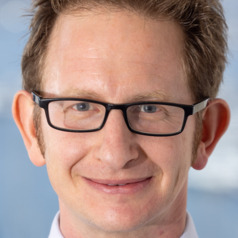
Jonathan May
Research Associate Professor of Computer Science, University of Southern California
Jonathan May is a Research Associate Professor at the University of Southern California's Information Sciences Insitute, where he directs the Center for Useful Techniques Enhancing Language Applications Based on Natural And Meaningful Evidence. His research areas include natural language processing, specifically machine translation, dialogue, semantic parsing, and formal language theory. Jonathan May received his Ph.D. in Computer Science from USC in 2010. Prior to re-joining USC and the Information Sciences institute in 2014, he was a research scientist at SDL Language Weaver.
Less ![]()
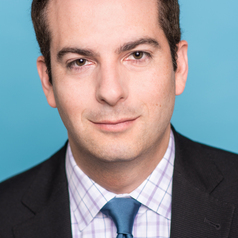
Jonathan Obar
Associate Professor, Department of Communication and Media Studies, York University, Canada
Jonathan Obar, PhD is an Associate Professor in the Department of Communication & Media Studies at York University. His research focuses on information policy and the relationship between digital technologies, civil liberties and the inclusiveness of public cultures. Academic publications address big data and privacy, online consent processes, data privacy transparency, internet routing and NSA surveillance, network neutrality, and digital activism. With funding from the Office of the Privacy Commissioner of Canada, he recently launched www.biggestlieonline.com, a knowledge mobilization site to engage stakeholders in meaningful online consent research.
Dr. Obar previously worked as a Research Fellow with the media reform group Free Press, the public policy think tank the New America Foundation, and as a Senior Advisor to the Wikimedia Foundation’s Wikipedia Education Program.
Less ![]()
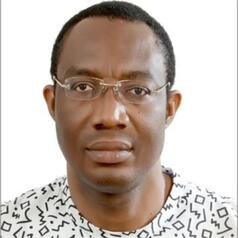
Jonathan Oti
Associate Professor at the Advanced Materials Testing Centre (AMTeC), University of South Wales
Jonathan Oti is Associate Professor and Lead Consultant at AMTeC on testing of soils and concrete.
He researches into the development of sustainable construction materials, technologies, and practices. His research interests revolve around the use of natural, industrial and agricultural waste and by-product materials for partial or whole replacement of the traditional binders to produce a new generation of concrete, mortar and bricks, suppression of sulphate-induced swelling in lime-stabilised soils, development of geo-polymer binders for civil infrastructural applications.
Less ![]()
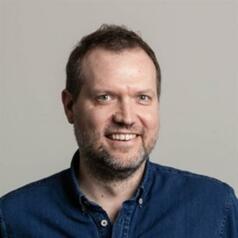
Jonathan Payne
Principal research fellow, Murdoch Children's Research Institute
Associate Professor Jonathan Payne is co-lead of the Brain & Mind Research Group at the Murdoch Children's Research Institute, where he leads the Genetics and Neurodevelopment Team and sits on the steering committee of the Neurodevelopment Flagship. He is a practicing senior clinical neuropsychologist at the Royal Children's Hospital and an Honorary Principal Research Fellow in the Department of Paediatrics, University of Melbourne.
Associate Professor Payne's research draws on a range of cognitive, behavioural, neuroimaging, and laboratory protocols to understand how genetic variants can affect brain development and increase the risk for neurodevelopmental disorders. He is also an experienced trialist and leads several pharmacological and non-pharmacological clinical trials.
Less ![]()
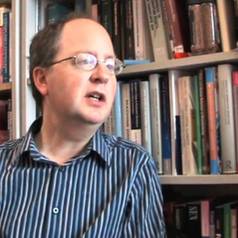
Jonathan Perraton
John's main areas of research focus on macroeconomics, political economy and methodology, with a specific interest in the processes of economic globalisation and their policy consequences. He obtained a PhD in Economics from the University of Nottingham in 1993 and has been a senior lecturer at the University of Sheffield since 2006.
Jonathan graduated from the University of Cambridge in 1985 and obtained a PhD in Economics from the University of Nottingham in 1993. He was then an Economics Research Officer at the Open University on the Globalisation and the Advanced Industrial State project from 1993 to 1995. He was appointed as Baring Fellow in Political Economy at the University of Sheffield in 1995 and then as a Lecturer in Economics since 1999. He was promoted to Senior Lecturer in 2006.
Jonathan is convenor of the Post-Keynesian Economics Study Group, a member of the College of Reviewers for the Canada Research Chairs Program and a member of the Stirling Centre for Economic Methodology. Previously he was also Deputy Director of the Political Economy Research Centre at the University of Sheffield.
Less ![]()
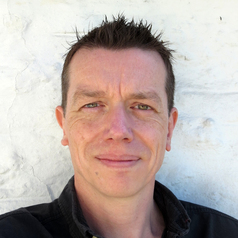
Jonathan Pettitt
I am a Reader in Genetics at the University of Aberdeen. I graduated in Biochemistry from Imperial College London, and received my PhD from the University of Cambridge, after which I carried postdoctoral research at the University of Colorado and the Netherlands Institute of Cancer Research, Amsterdam.
Less ![]()
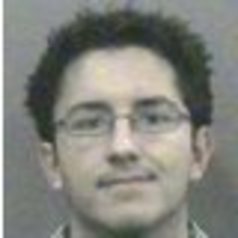
Jonathan Pugh
Research Fellow, University of Oxford
Jonathan Pugh is a Postdoctoral Research Fellow in Applied Moral Philosophy on Wellcome Trust Investigator Award in Medical Humanities 'Neurointerventions in Crime Prevention: An Ethical Analysis'. He recently completed a DPhil project at Oxford University entitled, "Autonomy, Rationality and Contemporary Bioethics". His research interests lie primarily in issues concerning personal autonomy in practical ethics, particularly topics pertaining to informed consent. He has also written on the ethics of human embryonic stem cell research, and the use of genetic enhancement technologies.
Less ![]()

Jonathan Roberge
Professor, Institut national de la recherche Scientifique (INRS)
Jonathan Roberge is Full Professor at the Institut National de la Recherche Scientifique (INRS) in Montreal, Canada. He funded the Nenic Lab as part of the Canada Research Chair in Digital Culture he has held since 2012. His most recent edited volumes include Algorithmic Culture (Routledge, 2016) and The Cultural Life of Machine Learning (Palgrave, 2020).
Less ![]()
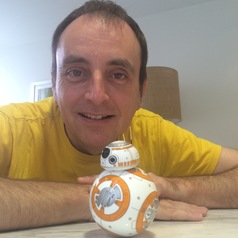
Jonathan Robers
Jonathan is Professor in Robotics at Queensland University of Technology (QUT). His main research interest is in the area of Field Robotics and in particular making machines operate autonomously in unstructured environments. He graduated from the University of Southampton, UK, in 1991 with an Honours degree in Aerospace Systems Engineering. Jonathan furthered his interest in computer vision while completing a PhD (1991-1994) at the University of Southampton where he also developed skills in parallel computing.
In 1995 Jonathan joined CSIRO (Australia’s largest government research agency) to develop the area of mining robotics where he worked on numerous large robot machines including 3,500 tonne draglines, 30 tonne underground haul trucks and autonomous underground explosive loading vehicles. His work with his colleagues on the navigation system of semi-autonomous Load-Haul-Dump (LHD) vehicles was commercialised by Caterpillar. He was appointed a Science Leader at CSIRO in the area of Robotics and then went on to lead the Autonomous Systems Laboratory also at CSIRO where he was Research Director.
Jonathan is the co-inventor, and current head judge of the UAV Challenge Outback Rescue, an international flying robot competition in which teams search for a lost bushwalker using autonomous robotic aircraft. In 2013 he and his research team won the Australia and New Zealand Internet Award for Innovation for their Museum Robot project. This project deployed two mobile robots in the National Museum of Australia in Canberra and continues to be used by remote school students to visit the museum with an educator guide, on a weekly basis.
In 2013 Jonathan made international news by being the first person to 3D map the interior of the Leaning Tower of Pisa using his team’s Zebedee 3D laser scanning mobile mapping system. He continues to have an interest in the use of robotics technology for the use in documenting and protecting important cultural heritage sites. His team’s mapping of Fort Lytton in Brisbane in conjunction with Queensland Parks and The University of Queensland was the first Australian heritage site to be archived on CyArk, the international digital cultural heritage database.
At QUT, Jonathan is now developing technology for medical and healthcare robotics and in particular has an interest in the use of robot vision to help with robotic surgery.
Jonathan was President of the Australian Robotics & Automation Association Inc. from 2007-2008, and between 2008 and 2013 was Deputy Research Director of the Australian Research Centre for Aerospace Automation (ARCAA).
Jonathan is also an expert on Star Wars, which he first saw after queueing around the block for tickets with his brother and parents to see the original film in 1977. He has maintained an active interest in all things Star Wars, especially droids, since that time.
Less ![]()
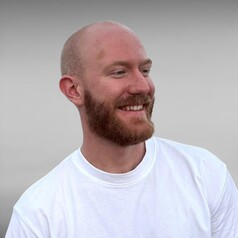
Jonathan Röders
Research Associate in Peace and Conflict Studies, London School of Economics and Political Science
I am an LSE-based researcher specializing in development interventions in communities affected by violent conflict, with a focus on livelihood security, trust-building, reconciliation, and the societal reintegration of individuals formerly involved with armed groups. I have done work on various such settings around the world, including FARC ex-combatants in Colombia, former cartel members and incarcerated individuals in Mexico, and military veterans and their families in Ukraine.
In 2021, I graduated with a BA in Political Science from the Freie Universität Berlin with a focus on International Relations and Political Theory, spending the 2019/2020 academic year at University College London through an Erasmus+ mobility. In 2022, I completed an MSc in International Social and Public Policy at the London School of Economics with the dissertation: “Empowering Indigenous Classrooms: A Grounded Theory of Intercultural Bilingual Education in Chiapas, Mexico”.
I grew up in Germany and got interested in armed conflict dynamics and ex-combatant reintegration while spending a year abroad in Colombia in 2017/2018. Before joining my current role, I worked in a Volkswagen Foundation-sponsored research project on German Federalism during the COVID-19 pandemic at the Chair of German Politics of the Freie Universität Berlin.
Less ![]()
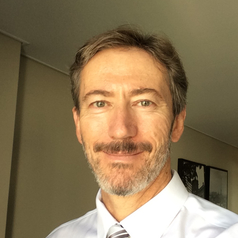
Jonathan Tapson
Jonathan Tapson is the Director of the MARCS Institute for Brain, Behaviour and Development.
His research area is in electronic sensors and systems, and particularly bio-inspired sensors. He has published more than 100 peer-reviewed articles and holds 11 patents.
His research has led to the founding of three spin-out companies, and he remains very interested in start-up entrepreneurship.
His current research activity focuses on networks which can learn to make decisions in the same way that the human brain preforms this task.
Less ![]()
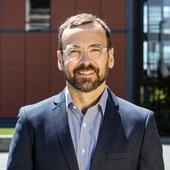
Jonathan Tonkin
Associate Professor of Ecology and Rutherford Discovery Fellow, University of Canterbury
Less ![]()
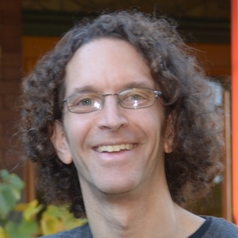
Jonathan Weinkle
Clinical Assistant Professor of Medicine and Part-Time Instructor of Religious Studies, University of Pittsburgh
Dr. Weinkle is a general internist and general pediatrician and is a graduate of the University of Pittsburgh School of Medicine and a product of the Medicine-Pediatrics residency at UPMC Shadyside and Children’s Hospital of Pittsburgh. He practices primary care medicine at the Squirrel Hill Health Center, a Federally Qualified Health Center and certified Patient Centered Medical Home, providing comprehensive care to patients of all ages with and without insurance and representing a broad diversity of languages, faiths, cultures, native lands, and socioeconomic backgrounds. In addition, Dr. Weinkle serves as a medical advisor to the Closure project of the Jewish Healthcare Foundation, a project intended to improve the quality of care and change the individual experience at end-of-life, and is engaged in other Foundation initiatives related to patient-provider communication, genetic screening, and vaccination. Driving both of these endeavors is a strong commitment to infusing his interactions with patients with the core values of his faith, beginning with the idea that both patient and provider are created in the Divine image and must act and be treated accordingly. Dr. Weinkle serves as the Medical director of the Physician Assistant Program at Chatham University.
Less ![]()
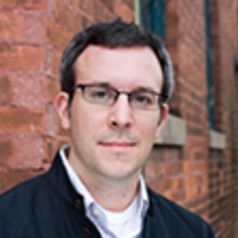
Jonathan Wynn
Jonathan Wynn works at the intersection of urban and cultural sociology. His two major publications are The Tour Guide: Walking and Talking New York (2011, University of Chicago Press, Fieldwork Encounters and Discoveries Series) and Music/City (2015, University of Chicago Press). His work has also been published in City & Community, Qualitative Sociology, Sociological Forum, Cultural Sociology, and Contexts Magazine, and an article in Ethnography called “Hobo to Doormen: The Characters of Qualitative Analysis, Past and Present.”
His forthcoming book, Music/City: Festivals and Culture in Great American Cities, is a comparative, multi-method analysis of three music festivals (the Country Music Association Festival in Nashville, the “Dunkin Donuts” Newport Folk Festival, and the South by Southwest festival in Austin, Texas). The book details the interrelationship between festivals and their cities, marking how they support and exploit each other through these internationally recognized events with rich description and interviews from a wide array of key urban and cultural placemakers. The book culminates with an argument for temporary events as critical to the culture of cities and their communities.
He also working on an Urban Culture primer (co-authored with Andrew Deener) that is under contract with the Oxford University Press.
Jonathan Wynn was recently the co-editor of the ASA Culture Section Newsletter (with Claudio Benzecry and Andrew Deener) between 2011 -2014 and was a regular contributor to Everyday Sociology in 2011-2014. On campus, he serves on the Common Read Book Committee.
Less ![]()
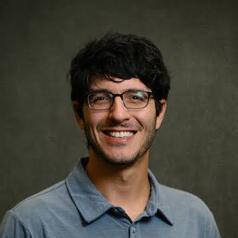
Jonathan Zrake
Assistant Professor of Physics, Clemson University
My group at Clemson works on topics in high energy and multi-messenger astrophysics, using high-performance, state-of-the-art computing. My interests include binary neutron star mergers, gamma-ray bursts, pulsar wind nebulae, AGN jets, binary black hole accretion, turbulence, and magnetic reconnection.
Less ![]()
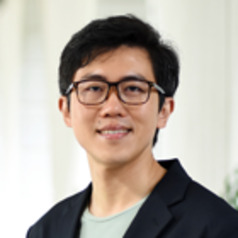
Jonathan A Chu
Assistant Professor, Lee Kuan Yew School of Public Policy, National University of Singapore
Jonathan Chu is a Presidential Young Professor in International Affairs at the Lee Kuan Yew School of Public Policy at the National University of Singapore. He is also the chair of the Master in International Affairs (MIA) program.
Professor Chu research how global norms and opinion impact the politics of war, democracy, and great power rivalry. His work appears in peer-reviewed publications such as International Studies Quarterly, Journal of Politics, Proceedings of the National Academy of Sciences, and World Politics. In addition to his research, Professor Chu teaches, consults, and gives talks on issues of international affairs, democracy, public opinion, and survey methodology.
Professor Chu received a B.A. in political science from UC San Diego, and a Ph.D. also in political science from Stanford University, where he was a U.S. National Science Foundation Fellow. He completed postdoctoral work at Perry World House at the University of Pennsylvania. You can follow him on Twitter at @whoisjonchu and read more about his research at https://www.jonathanchu.org/.
Less ![]()
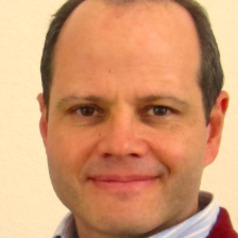
Jonathan B. Taylor
Research fellow at the Harvard Project on American Indian Economic Development, Harvard Kennedy School
Jonathan Taylor is a research fellow at the Harvard Project on American Indian Economic Development, and a senior policy scholar at the Udall Center for Studies in Public Policy at the University of Arizona.
Mr. Taylor has provided expertise to tribes and bands in the United States and Canada in the areas of strategic management and economic development. Mr. Taylor has worked in a wide variety of institutional and cultural contexts and on a wide variety of projects. These projects have included assessing changes in quality of life due to major enterprise success (including casino gaming), designing tax regimes, assisting in constitutional evaluation and reform, providing public policy analysis and negotiation support in the context of resource development, valuing non-market attributes of natural resources, and educating tribal executives. At present, he is studying the national evidence on the socioeconomic effects of Indian gaming on Indians and non-Indians. He has authored or supported testimony in litigation and in public hearings for a number of Native American groups needing economic analysis to support treaty rights or tribal policies.
Mr. Taylor holds an A.B. in politics from Princeton University (1986) and an M.P.P. from the John F. Kennedy School of Government, Harvard University (1992).
Less ![]()
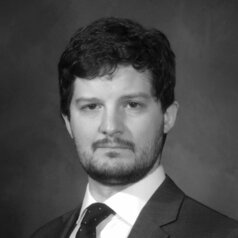
Jonathan D T Ward
Research Associate with the Centre for the Changing Character of War, University of Oxford
Jonathan D T Ward is the author of two books on Chinese grand strategy and US-China global competition: China's Vision of Victory and The Decisive Decade. He has been studying China, Russia, and India for nearly twenty years, from travels with truck caravans in Tibet and across the South China Sea by cargo ship in his early twenties, to accessing Chinese Communist Party archives that have now been closed to the world while a PhD candidate at Oxford, to consulting for the U.S. Department of Defense and Fortune 500 companies on China risk and global markets strategy.
Dr. Ward is a research associate with the University of Oxford's Centre for the Changing Character of War. He earned his PhD at the University of Oxford, specializing in the history of modern China at Oxford's Faculty of Oriental Studies, and his M.St. in Global and Imperial History at Oxford's Faculty of History. He studied philosophy, Russian, and Chinese language at Columbia University as an undergraduate, and completed further language study in Russian and Chinese at St. Petersburg State University and Beijing University. Dr. Ward's think tanks affiliations include the Stephen M. Kellen Term Member Program at the Council on Foreign Relations, the Shawn Brimley Next Generation National Security Leaders Program at the Center for a New American Security, and the Project on Nuclear Issues at the Center for Strategic and International Studies in Washington DC.
Dr. Ward has brought the experience of a traveller, the discipline of a scholar, and the insight of a strategy consultant to one of the toughest, biggest challenges of our time: what does China want, how will it try to get it, and what should America do? Dr. Ward is the Founder of Atlas Organization, a Washington DC based consultancy focused on US-China global competition. He speaks Russian, Chinese, Spanish, and Arabic.
A path-breaking work on Chinese global strategy, China’s Vision of Victory brings the reader to a new understanding of China’s grand-scale planning and ambitions. From seabed to space, from Africa to the Antarctic, from subsurface warfare to the rise of China’s global corporations, this book illuminates the greatest challenge of our lifetimes – the Chinese Communist Party’s ambition to end the American-led world and to bring about a century defined by Chinese power. Following on this work, Dr. Ward's second book, The Decisive Decade lays out a US and Allied grand strategy to win the long-term contest with the People's Republic of China presenting strategies that span the economic, diplomatic, military, and ideological arenas.
Less ![]()
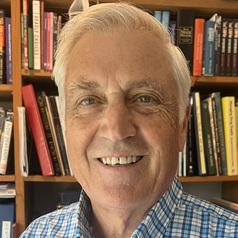
Jonathan D. Quick
Adjunct Professor of Global Health, Duke Global Health Institute, Duke University
Jonathan ("Jono") D. Quick, MD, MPH is adjunct Professor of Global Health, Duke Global Health Institute and Affiliated Faculty at the Global Health Equity program, Harvard Medical School. His 2020 book, "The End of Epidemics: The Looming Threat to Humanity and How to Stop It" foreshadowed the Covid-19 pandemic (available in U.S., Australian, Italian, Korean, South Asia, U.K. U.S. editions). His current research focuses on market-driven epidemics, from tobacco to prescription opioids to ultra-processed foods, to social media. Dr. Quick has held senior positions in the World Health Organization, the Rockefeller Foundation, global health non-profit Management Sciences for Health, and the U.S. Public Health Service. Through these positions he has carried out assignments to improve public health in more than 70 countries in Africa, Asia, Latin America, and the Middle East. He has written more than 120 books, chapters, journal articles, and opinion pieces in TIME Magazine, Wall Street Journal, Sojourners, and other media outlets. He served on numerous non-profit boards, and was the founding board chair of Clapham Servants.Trinity Forum Readings on the lives and faith of Ellen Johnson Sirleaf, Nelson Mandela, Albert Schweitzer and human rights pioneer Bartolomé Las Casas.
Less ![]()
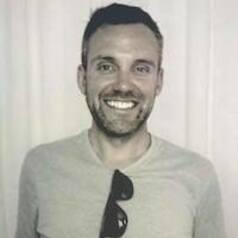
Jonathan Graffam O'Meara
Tutor in Theatre, The University of Melbourne
Jonathan Graffam-O’Meara is a Tutor in Theatre at the Victorian College of the Arts, Faculty of Fine Arts and Music, The University of Melbourne. He is an actor, writer and dramaturg with over 20 years of professional experience in the industry. Jonathan is completing a PhD in Theatre at Monash University with a project titled “Fat Dramaturgies: Queer strategies and methodologies in staging fat performance”, where he looks at examples of radical body size politics (embodied fatness) onstage. He specialises in the field of contemporary dramaturgy and popular performance.
Less ![]()
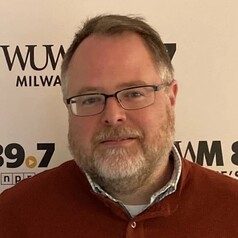
Jonathan J. Kasparek
Professor of history, University of Wisconsin-Milwaukee
Jonathan Kasparek is professor of history at the Waukesha campus of the University of Wisconsin-Milwaukee, where he has taught since 2004. He earned a Ph.D. in U. S. History with a minor in Folklore from the University of Wisconsin-Madison and specializes in Wisconsin and Midwestern history and public history. Prior to joining the faculty, he worked in the public history division of the State Historical Society of Wisconsin and was part of the interdisciplinary team working on the restoration of the Wisconsin State Capitol. Dr. Kasparek is the author of Fighting Son: A Biography of Philip F. La Follette (2006) and Proxmire: Bulldog of the Senate (2019) both published by the Wisconsin Historical Society Press. Since 2021 he has been the book review editor for Middle West Review.
Less ![]()
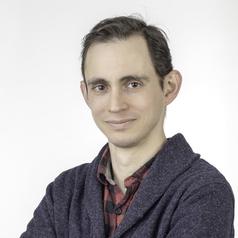
Jonathan Joseph Cannon
Assistant Professor of Psychology/Neuroscience/Behavior, McMaster University
Wrote dissertation on mathematical models of brain oscillations, did postdoctoral work in both models of neuronal homeostasis and cognitive neuroscience of autism, currently researching rhythmic timing in the brain and mind. Moonlights as a semi-professional violinist and guitarist in various folk traditions.
Less ![]()

Jonathan K. Pokorski
Professor of Nanoengineering, University of California, San Diego
Jonathan K. Pokorski received his doctoral degree in organic chemistry from Northwestern University in 2007, where he designed, synthesized, and tested diverse peptidomimetic systems for use in medical diagnostics and therapeutics. Following his Ph.D. studies, Pokorski moved to The Scripps Research Institute, where he used both chemical and genetic engineering of viral nanoparticles to synthesize novel drug delivery systems. During his postdoctoral training, Pokorski first earned an NIH Ruth Kirschstein fellowship and later secured an NIH Pathway to Independence Award.
Prior to his appointment at UC San Diego in 2018, Pokorski began his independent career as an Assistant Professor at Case Western Reserve University in the department of Macromolecular Science and Engineering. Pokorski was a finalist for the prestigious John Diekhoff graduate mentoring award at CWRU from 2013 to 2017, was named an ACS PRF new investigator, and is a Kavli fellow. Research in the Pokorski lab is funded through grants from the National Institutes of Health, National Science Foundation, and the American Chemical Society.
Less ![]()
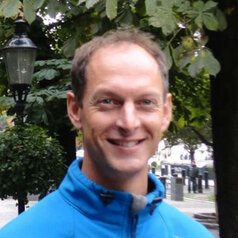
Jonathan L. Carrivick
Academic, University of Leeds
My research interests focus on earth surface processes and landforms in polar, arctic and alpine environments. I focus especially on the processes and products of glacial outburst floods or ‘jökulhlaups’.
My areas of expertise include geomorphology, specifically cold climate earth surface processes and landforms and high-magnitude fluvial processes (glacial outburst floods and bedrock channels).
Less ![]()
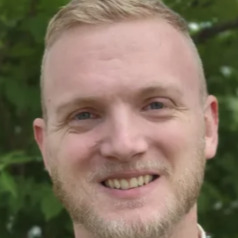
Jonathan M. King
Assistant Professor of Political Science, West Virginia University
Jonathan M. King is an Assistant Professor in the Department of Political Science, which he joined shortly after receiving his Ph.D. from Michigan State University in 2023. His teaching interests focus on American judicial institutions, including courses on constitutional law and judicial politics and process.
Professor King's research broadly examines how judges are nominated and confirmed to the U.S. federal judiciary, how their personal attributes influence what they do when they are on the bench, and how the public then views their decisions.
PhD, Michigan State University, 2023
Less ![]()
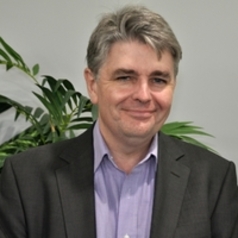
Jonathan M. Wooding
Honorary Professor, University of Sydney
I am an honorary Professor of Celtic Studies at the University of Sydney. I specialise in early religious history of the Celtic nations. I also have a special interest in seafaring; its history and literary representation.
Less ![]()
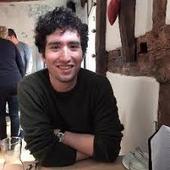
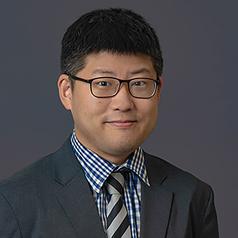
Jong Eun Lee
Assistant Professor, North Greenville University
In 2009, I received B.A. in Political Science at the American University School of Public Affairs (SPA)
In 2011, I received M.A. in Political Science at Fordham University.
In 2018, I received M.Phil in International Relations at the American University School of International Service (SIS).
In 2023, I received Ph.D. in International Relations from the American University School of International Service.
Currently, I am an assistant professor of political science at North Greenville University.
From 2011 to 2014, I served as an intelligence officer in the Republic of Korea Air Force.
Less ![]()
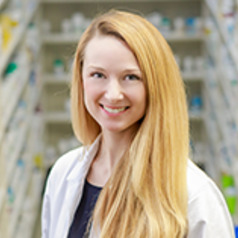
Joni Carroll
Assistant Professor of Pharmacy and Therapeutics, University of Pittsburgh
Dr. Joni Carroll is an Assistant Professor within the Community Leadership and Innovation in Practice (CLIP) Center at the University of Pittsburgh School of Pharmacy, and she also serves as a Lead Pharmacist with the Allegheny County Health Department. Dr. Carroll's research is motivated by what she sees in practice – the unfortunate, fragmented healthcare that people receive, the health disparities that exist, and the unmatched accessibility and potential of community-based pharmacists to help people live their healthiest lives possible. Dr. Carroll utilizes implementation and dissemination science principles to assist community-based pharmacists with 1) their roles as public health providers and 2) building sustainable, equitable pharmacist-led patient care services. As a pharmacist and researcher, Dr. Carroll is passionate about bringing patients and stakeholders into the research and implementation process - not simply as research subjects, but as partners.
Dr. Carroll recently received funding to implement widespread anti-stigma education surrounding opioid use disorder for pharmacists, student pharmacists and pharmacy technicians; and for the development of a community pharmacist practice-based research network in Pennsylvania. Other recent projects focus on implementing pharmacist-led public health initiatives, such as COVID-19 vaccines and oral antivirals, community pharmacy test-to-treat programs for sexually transmitted infections, and the exploration of pharmacists' roles in emergency preparedness and medical countermeasures planning. Through the CLIP Center, Dr. Carroll mentors a variety of, students, residents, and fellows on projects relating to community pharmacy practice development and community pharmacists roles in public health and health equity. She currently serves as the director for PittPharmacy's Public Health Pharmacy Fellowship. In addition to her research and teaching, Dr. Carroll also provides direct patient care for patients with tuberculosis within the Allegheny County Health Department’s Pulmonary Clinic.
Less ![]()
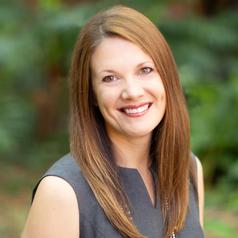
Joni Williams Splett
Associate Professor of School Psychology, University of Florida
Joni Williams Splett is an Associate Professor of School Psychology at the University of Florida's College of Education, Director of the UF Prevention and Intervention Network, and a Licensed Psychologist. Her work seeks to improve how schools best meet youths' mental health needs, especially those youth from marginalized backgrounds or for which accessing mental health care is a challenge. Her work is funded by the National Institute of Justice, National Institutes of Health, Institute for Education Sciences, U.S. Department of Education’s Offices of Elementary and Secondary Education, as well as Special Education Programs, and the Patient-Centered Outcomes Research Institute, among others. Dr. Splett teaches social-emotional intervention and assessment courses, as well as supervising undergraduate and graduate students' research experiences.
Less ![]()
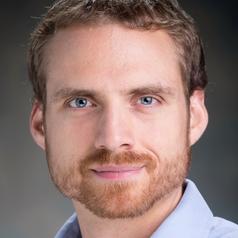
Jonn Axsen
Jonn Axsen employs interdisciplinary and mixed-method research approaches to identify solutions for today’s enormous environmental challenge: mitigating greenhouse gas (GHG) emissions, of which almost a quarter arise from ground transportation. His research demonstrates that such solutions require an understanding of individual decision-making, social systems and culture, technology development, and public policy.
Less ![]()
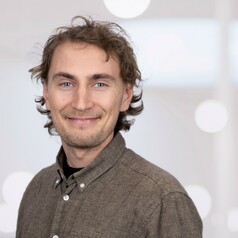
Jonne Silonsaari
Doctoral Researcher in Urban Planning, University of Amsterdam
I am an expert and a Doctoral Researcher in sociology, urban planning and health promotion. Before my academic career I worked in leading national and international sport governing bodies. My research focuses on children and young peoples mobility and right to the city.
Less ![]()
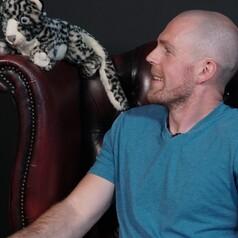
Jonny Hanson
Research Fellow, Political Ecology, Queen's University Belfast
Jonny is an academic and award-winning social entrepreneur who set up and managed Northern Ireland’s first community-owned farm. Raised between Malawi, Africa, and Monaghan, Ireland, he has a PhD in snow leopard conservation from the University of Cambridge and is an Associate of the Snow Leopard Conservancy.
Jonny is currently a research fellow in the ARK social policy hub at Queen's University Belfast, where he studies the social aspects of conservation and agriculture, and how these relate to other social processes, including tourism and enterprise.
His first book, 'Coexistence: learning to live with lynx, wolves and bears', is out with Pelagic in early 2025.
www.jonnyhanson.com
@jonnyhhanson
Less ![]()
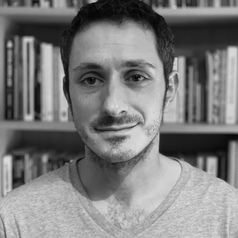
Jonny Hunt
Senior Lecturer in Applied Social Science, University of Bedfordshire
Jonny Hunt is a senior lecturer in Applied Social Science - Childhood & Youth Studies at the University of Bedfordshire. For the past 20 years Jonny has worked in relationship and sex education (RSE), working directly with children, young people and the professionals who support them. Jonny is author of "Sex Ed' for Grown Ups: How to talk to children and young people about sex and relationships" available through Routledge.
Less ![]()
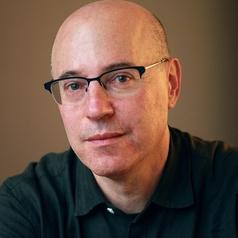
Jonny Steinberg
Senior lecturer in African Studies, Yale University
Jonny Steinberg is the author of several books about everyday life in the wake of South Africa’s transition to democracy. A two-time winner of South Africa’s premier nonfiction award and an inaugural winner of the Donald Windham-Sandy M. Campbell Literature Prize, Steinberg was professor of African Studies at Oxford University and currently teaches at Yale and at the Wits Institute for Social and Economic Research (WiSER) in Johannesburg.
Less ![]()
- Market Data

















